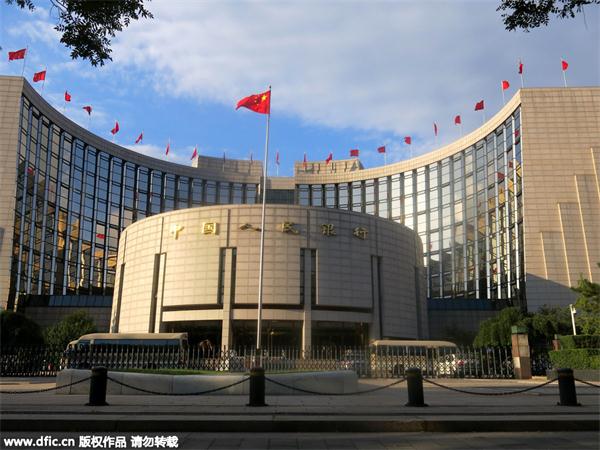 |
|
View of the headquarters and head office of the People's Bank of China (PBOC), China's central bank, in Beijing, June 27 2015. [Photo/IC] |
On Oct 23, the People's Bank of China (PBOC) announced a 25 bps cut in the one-year benchmark lending rate to 4.35 percent, effective from Oct 24. The one-year benchmark deposit rate was also lowered by 25 bps to 1.5 percent. In addition, the central bank reduced the renminbi reserve requirement ratio by 50bps for financial institutions, some of which were granted another 50bps drop. Meanwhile, authorities also scrapped the ceiling of deposit rates that commercial banks and rural cooperative financial institutions can offer, a move that basically deregulated interest rates, and enabled a smooth transition toward interest rates liberalization.
It is arguable that such decision, announced on the eve of the Fifth Plenary Session of the 18th Central Committee of the Chinese Communist Party that convened on Oct 26, was meant to add impetus to China's economy and to set the stage for the nation's 13th Five-Year Plan (2016—2020).
This is PBOC's third cut on interest rates as well as RRR since this June. The rationale behind the credit-easing is to create favorable conditions for China's economic restructure and to ensure sound development, considering the economy remains under downward pressure, with GDP growth in the third quarter hitting a record low of 6.9percent since 2009.
The double cuts will bring down financing costs all across the financial market, which will encourage corporate investments and capital flow into the real economy. The cap removal has even greater implications, as it sets the seal for China's reform of interest rates liberalization, and will bring a sea-change to the financial market.
Real-estate investment: Hardly profitable
However, it remains to be seen whether the move will unleash liquidity that can benefit the real economy. Since November 2014, there have been six cuts in interest rates and five cuts in reserve ratio, but they didn't help much to relieve China from an ever-persistent slowdown.
So what makes the mounting slowdown pressure facing China? In fact, the main culprits are excessive industrial capacity and sluggish economic restructuring, which are to be blamed for the low growth in fixed-asset investment in the first three quarters this year, among which real estate investment growth slowed to below 3 percent. In other words, the current oversupply makes the private sector reluctant to lay out more money, while it is government infrastructure projects that pick up the slack in investment growth. And the main disincentive for individual or corporate investors is the tardy inventory destocking in housing market.
Therefore, the interest rates cuts are, for the most part, an attempt to accelerate such destocking process and redress the supply-demand imbalance. However, as things stand, although the housing market in first-tier cities and some second-tier cities in China has started to pick up since this May with rising sales, third-tier cities are still struggling with excessive housing inventory.
The presumed magic bullet won't go a long way towards addressing the real-estate glut when the loss of investment value in many cities' housing market is pushing investors out. If low-cost capital failed to flow into the housing market, the economy would remain under downward pressure, and a wave of liquidity will circulate within the financial market. Under such condition, many real-estate enterprises would choose to bow out rather than invest more, hence investment in housing market would shrink. There’s no telling whether the central bank’s measures can change the situation,or perhaps they might just mitigate the worst-case scenario at most.
